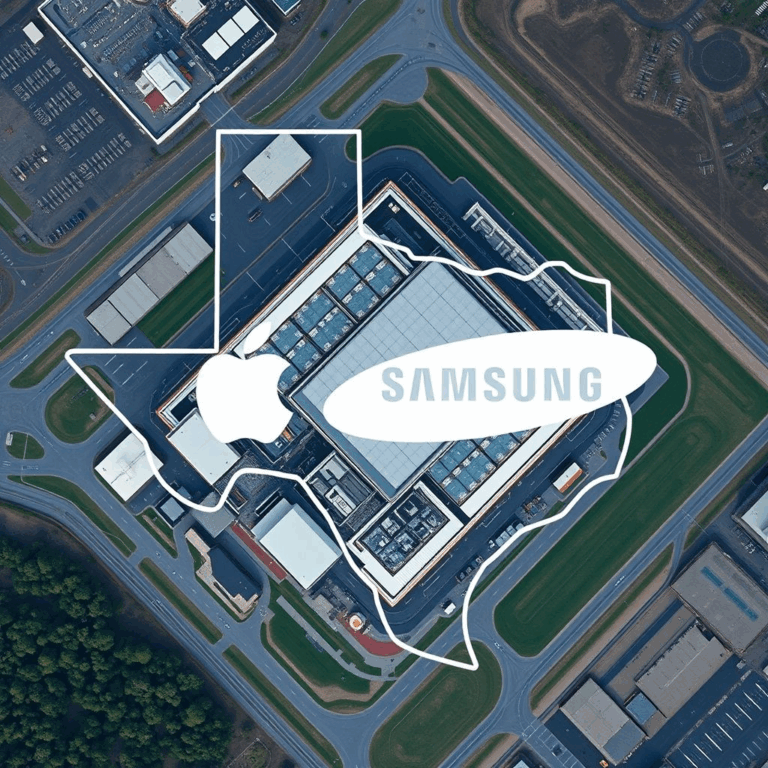Introduction: Microsoft Bets Big on Britain
On September 16, 2025, Microsoft unveiled one of the most ambitious technology investments in British history: a $30 billion commitment to develop sovereign UK AI infrastructure. This colossal project includes constructing next-generation data centers, deploying more than 23,000 NVIDIA GPUs, and establishing a strategic partnership with London-based startup Nscale to provide localized, sovereign AI compute for enterprises, researchers, and government institutions.
This announcement positions the UK as a global contender in artificial intelligence, alongside the United States and China, and reflects a growing international race to secure compute sovereignty in the AI era.
Why This Matters: The Global AI Compute Race
Artificial intelligence is no longer limited to research labs — it has become the backbone of economies, national security, and global competitiveness. But building AI requires more than just algorithms; it demands massive compute power, especially GPUs capable of training trillion-parameter models.
Today, three regions dominate:
- United States: With OpenAI’s “Stargate” supercluster and Google’s TPU-powered systems.
- China: Pursuing AI independence with domestic hardware and sovereign compute clusters.
- Europe: Strong on AI ethics and regulation, but relatively weak in compute capacity.
The UK AI infrastructure project bridges this gap, giving Britain a seat at the top table of AI innovation.
The Investment Breakdown: $30 Billion in Action
Microsoft’s $30 billion pledge is more than symbolic — it is a comprehensive infrastructure program spanning hardware, software, and sustainability.
1. Data Centers at Scale
- The flagship site in Essex will house the UK’s largest AI supercomputer.
- Additional facilities planned in Scotland and Northern England.
- Each site designed for modular expansion, ensuring scalability over the next decade.
2. GPU Powerhouse
- 23,000 NVIDIA H200 and B200 GPUs deployed initially.
- Capable of training next-gen foundation models with up to 20 trillion parameters.
- AI workloads spanning natural language, robotics, climate modeling, and drug discovery.
3. Partnership with Nscale
- UK startup Nscale specializes in sovereign AI compute platforms.
- Ensures compliance with UK data sovereignty and regulatory frameworks.
- Provides enterprises with secure, localized access to AI supercomputing power.
4. Green AI Commitment
- Microsoft pledges to power all new data centers with 70% renewable energy by 2030.
- Plans to integrate liquid cooling for GPUs to cut energy waste.
- Part of Microsoft’s global mission to be carbon negative by 2030.
The Strategic Importance of Sovereign AI Compute
One of the most striking elements of Microsoft’s plan is the focus on sovereignty.
- Data Localization: Sensitive data, particularly in healthcare, finance, and defense, must remain within UK borders.
- National Security: Sovereign compute prevents over-reliance on foreign data centers, reducing espionage risks.
- Regulatory Compliance: With the UK charting its own AI governance path post-Brexit, sovereign compute ensures alignment with domestic rules.
By integrating Nscale, Microsoft ensures that the UK AI infrastructure is not merely an extension of U.S. hyperscale cloud dominance, but a locally anchored ecosystem serving British priorities.
Impact on the UK Economy and Innovation
1. Job Creation
- Estimated 45,000 direct and indirect jobs created over the next five years.
- Roles in data center construction, AI research, cloud engineering, cybersecurity, and sustainability operations.
2. Startup Ecosystem
- British AI startups gain access to supercomputer-grade resources without relocating to the U.S.
- Nscale partnership offers startups credits and subsidized compute.
- Could lead to a new wave of AI unicorns headquartered in London, Cambridge, and Manchester.
3. Academia and Research
- UK universities will gain access to sovereign AI compute, accelerating breakthroughs in medicine, climate research, and robotics.
- Reduces dependence on U.S.-based compute credits.
4. Financial Services
- The City of London, a global finance hub, will leverage AI compute for fraud detection, risk modeling, and algorithmic trading.
- Locally hosted compute ensures data privacy compliance.
Reactions: Political and Industry Perspectives
UK Government
Prime Minister Rishi Sunak called it a “transformative vote of confidence in Britain’s AI future”, framing it as a cornerstone of the UK’s Tech Prosperity Deal with the U.S.
Microsoft Executives
Brad Smith, Microsoft’s Vice Chair, said:
“AI is the defining technology of our era. With this $30B commitment, we are ensuring that Britain has the sovereign infrastructure to compete at the very highest levels.”
Competitors
- Google Cloud and AWS may face pressure to announce rival UK investments.
- Smaller UK cloud providers see opportunities in niche AI services that complement Microsoft’s mega-clusters.
Critics
- Concerns about vendor lock-in — UK AI could become overly dependent on Microsoft.
- Environmentalists warn of strain on national power grids.
- Some argue that $30B in AI compute benefits Big Tech more than ordinary citizens.
Comparing Global AI Infrastructure Strategies
| Region | Strategy | Strengths | Weaknesses |
|---|---|---|---|
| USA | Massive private investment (OpenAI, Google, Anthropic) | Scale, innovation speed | Regulatory uncertainty |
| China | Sovereign AI compute, domestic GPUs | State-backed, sovereignty | Limited access to Western GPU tech |
| EU | Ethics-first regulation, slower compute rollout | Strong governance | Lagging infrastructure |
| UK | Sovereign AI via Microsoft-Nscale | Fast-track scale, global leadership | Heavy reliance on single vendor |
The UK’s approach represents a hybrid model: leveraging Big Tech’s scale (Microsoft) while embedding sovereignty (Nscale).
Sustainability Challenge: Can Green AI Work?
AI infrastructure is energy-hungry. A single large model training run can consume as much electricity as 100 UK households in a year.
Microsoft’s sustainability promises include:
- Liquid cooling to reduce GPU heat waste.
- Renewable energy contracts with Scottish wind farms.
- Plans to recycle GPU hardware after lifecycle.
Experts remain cautious: scaling to 23,000 GPUs and beyond could overwhelm local grids, requiring government coordination on energy policy.
Long-Term Outlook: The UK as an AI Superpower
By 2030, the UK could stand alongside the U.S. and China as an AI superpower, thanks largely to Microsoft’s $30B bet.
- Geopolitical Leverage: UK gains influence in global AI governance.
- Economic Growth: New industries and unicorns powered by sovereign compute.
- Scientific Breakthroughs: AI-enhanced research in medicine, energy, and climate.
But challenges remain: ensuring fair access, avoiding monopolization, and balancing growth with sustainability.
Conclusion: A Defining Moment for Britain’s Tech Future
Microsoft’s $30B UK AI infrastructure investment is more than just corporate expansion — it is a national milestone. It combines sovereign AI capacity, cutting-edge GPU supercomputers, and sustainability commitments to position the UK as a global AI leader.
The question now is whether Britain can leverage this historic opportunity to create not just infrastructure, but an ecosystem of innovation that empowers startups, researchers, and citizens alike.







